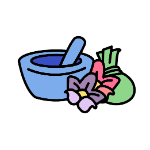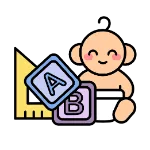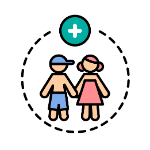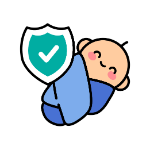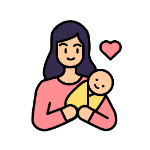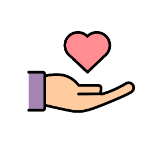
Childcare
What Is Attention Deficit Hyperactivity Disorder (ADHD)? Is It The Same As Autism?
10 min | Updated on 27-08-2023 by HappyPreggie
(Image credits to CafeMom)
Ever wondered what ADHD is like? Imagine a world where your brain is a bit like a race car, always revved up and zooming around. Sometimes it's fun, but other times, it can be challenging, especially for kids. Understanding ADHD is crucial - even more so for parents - because it allows them to better support their children by tailoring their parenting techniques and creating a loving, structured environment, which helps their child succeed and grow in confidence. It also helps parents advocate for their child at school and in the community, ensuring they get the right support and opportunities to reach their full potential.
If you're a parent, someone who takes care of kids, or just someone who wants to know about ADHD in children, you're in the right place. In this blog, we'll learn about what ADHD is, how it affects children, and most importantly, how we can help these incredible kids thrive. So, get ready, and let's start this adventure about ADHD together!
What is ADHD?
ADHD (Attention Deficit Hyperactivity Disorder) might sound like a mouthful, but to put it simply, it's like having a super energetic friend in your brain. Imagine your brain is a playground, and while most kids can sit still on the swings, children with ADHD are like those kids who can't resist climbing the jungle gym, running all over the place, and exploring everything at once. This can be super fun, but it can also make it a bit tricky for them to focus on one thing at a time.
According to the World Health Organization (WHO), ADHD is estimated to affect around 5% of children and 2.5% of adults worldwide. And guess what? Some kids who have ADHD still have it when they grow up, like when they become adults. So, it's not really rare; it happens to quite a few people, and it's important to understand and help those who have it.
What Causes ADHD?
The precise cause of Attention Deficit Hyperactivity Disorder (ADHD) isn't fully understood, but it's generally thought to arise from a complex interplay of genetic, environmental, and neurological factors. Genetics appear to play a significant role, as ADHD often runs in families. Certain brain regions and neurotransmitter systems, responsible for regulating attention and impulse control, may also be involved. Environmental factors such as prenatal exposure to toxins, premature birth, low birth weight, and lead exposure can contribute to an increased risk. While the exact cause remains multifaceted, recognising these contributing elements is essential in developing strategies for management and support for individuals with ADHD.
Common Misconceptions about ADHD
There are some common misunderstandings about ADHD that need to be cleared up before we start:
- ADHD is NOT just an excuse for being lazy or naughty. It's a real thing, and children with ADHD aren't misbehaving on purpose. Their brains are just wired a bit differently.
- It's NOT just a "kid thing". Many adults have ADHD too, and they've learned how to manage it.
- Having ADHD doesn't mean your child won’t be smart. In fact, lots of kids with ADHD are super smart and creative; they just need some extra support to shine.
What ADHD Looks Like In Children
(Image credits to Calm Sage)
Recognizing the signs of ADHD in children is the first step towards providing them with the understanding and support they need. ADHD can look different from one child to another, but here are some common signs you can look out for.
- Inattention: Children with ADHD sometimes find it hard to concentrate, even when they want to. They might have trouble staying on tasks, finishing their homework or chores, or frequently misplacing things like school stuff.
- Hyperactivity: Many kids with ADHD are full of energy and can't sit still. They may squirm, fidget, or tap their feet constantly, even in situations where it's not appropriate, like in class.
- Impulsivity: Kids with ADHD often do things without really thinking. They might say things quickly in class, cut off others when they talk, or do things without thinking about the consequences.
- Forgetfulness: They may frequently forget important things like school assignments, appointments, or household chores.
- Difficulty with Organization: Children with ADHD often find it really hard to keep their stuff neat and in order. Their rooms, school bags, and schoolwork might often look messy and all over the place.
Recognizing these signs in your child is vital because it opens the door to getting them the right support and guidance. It's not about labelling them; it's about knowing how their brain works and helping them handle ADHD challenges better.
Is ADHD And Autism The Same?
ADHD (Attention Deficit Hyperactivity Disorder) vs. Autism (Autism Spectrum Disorder):
Nature of the Conditions:
- ADHD: ADHD mostly means that kids have trouble paying attention, controlling their actions, and sometimes being too active. Children with ADHD might find it difficult to concentrate, listen carefully to directions, or stay seated.
- Autism: A more general condition where people have trouble with talking and acting with others. Children with autism might find it hard to understand how to behave in social situations, make friends, and do things over and over or really like one thing a lot.
Social Interaction:
- ADHD: Kids with ADHD usually like being with others, but sometimes they find it hard to concentrate when talking or following the rules of social behaviour.
- Autism: Kids with autism sometimes find it really hard to connect with others. They might not understand feelings very well, and it can be tough for them to make friends or build relationships.
Communication:
- ADHD: Children with ADHD often have age-appropriate language skills but may talk a lot and have difficulty waiting their turn in conversations.
- Autism: Autism can involve delayed speech development or difficulties with nonverbal communication, such as gestures and eye contact.
Interests and Repetition:
- ADHD: ADHD does not typically involve intense interests or repetitive behaviours like those seen in Autism. Children with ADHD might have varying interests and frequently shift from one interest to another.
- Autism: Autistic individuals often display intense interests in specific topics and engage in repetitive behaviours, such as hand-flapping or lining up objects.
Management and Support:
- ADHD: Managing ADHD usually means using plans and schedules, talking with a therapist, and sometimes taking medicine.
- Autism: Autism often requires specialised interventions, including speech and occupational therapy, social skills training, and individualised education plans (IEPs).
Overlap:
- It's important to note that ADHD and Autism can sometimes co-occur, meaning an individual may have characteristics of both conditions.
Diagnosis and Getting Help
(Image credits to JKYog Naturopathy Hospital)
Seeking professional help for an ADHD diagnosis is like getting a roadmap when you're lost in an unfamiliar place. It's a crucial step because:
- ADHD can be confusing, and the symptoms often overlap with other issues like anxiety or learning disabilities. A professional evaluation can figure out if it's really ADHD or something else, providing a clear picture of what your child is dealing with.
- Once diagnosed, you can work with professionals to create a personalised plan for your child. This might include strategies for school, therapy, or even medication if it's deemed necessary, which can make a big difference in your child's life.
- With an official diagnosis, your child may become eligible for special services and accommodations at school. This can help make things fair, as they can do the same things as their friends.
- Understanding that your child's difficulties are because of ADHD, not something they're doing on purpose, can help you both feel less guilty and frustrated. This understanding can make your bond stronger and help your child feel better about themselves.
Benefits Of Early Intervention
Early intervention doesn't just make life better right now, but it also makes their future brighter. It gives them the power to beat ADHD challenges and grow their special skills.
- Helps children develop essential skills for school, which can lead to better attention, organisation, and study habits, setting the stage for academic success.
- Parents and caregivers can help children build a positive self-image. Doing this can stop kids with ADHD from feeling really bad about themselves and thinking they're not good enough.
- Provides tools and coping strategies for children to manage their ADHD symptoms effectively. This equips them with lifelong skills to navigate challenges and adapt to various situations.
- Teach them valuable social skills, enabling them to make friends, maintain healthy relationships, and feel more socially confident.
- Reduce behavioural issues that may arise due to untreated ADHD - which, in turn, leads to a more harmonious family environment.
Strategies for Parents
Managing ADHD at home involves a few key strategies. Firstly, provide positive attention by noticing and praising your child when they do well. Give clear and effective instructions, breaking tasks into smaller steps. Remember to praise their effort, not just the outcome. Establish a system of rewards for completed tasks and good behaviour, and make sure consequences for challenging behaviour are consistent and fair. These approaches can help create a structured and supportive environment for your child with ADHD.
(Image credits to Verywell Mind)
Here are some tips for parents on managing ADHD-related challenges in other various aspects of their child's life:
1. Academic:
- Communication is key. Talk regularly with your child's teachers to ensure they understand your child's needs and can provide appropriate support.
- Help your child establish routines. Consistency can be a game-changer. Create a daily schedule that includes homework time, breaks, and organised study spaces.
2. Talents and Hobbies:
- Encourage exploration. Let your child try out different activities until they find something they're passionate about. ADHD kids often have diverse talents.
- Celebrate their strengths. If your child excels in something, whether it's art, sports, or science, nurture their passion and provide opportunities for growth.
- Be patient. Their interests might change frequently, and that's okay. It's all part of discovering their unique talents.
3. Self-Esteem:
- Emphasise their uniqueness. Help them see that their ADHD isn't a flaw but a part of what makes them special.
- Focus on effort, not just outcomes. Praise their hard work and determination, even if they don't always get perfect grades or scores.
- Teach coping skills. Show them how to manage challenges, which can boost their self-esteem and resilience.
4. Support Network:
- Connect with other parents. Join ADHD support groups or forums to share experiences, strategies, and emotional support.
- Include teachers and caregivers. Make sure everyone involved in your child's life understands their ADHD and is on the same page regarding strategies and expectations.
- Encourage friendships. Foster friendships with peers who accept and understand your child's differences, creating a supportive social network.
Supporting a child with ADHD can be a challenging but immensely rewarding journey. By understanding your child’s needs and strengths, you're already on the right path. Don't forget, this is a learning journey for both you and your child, and it's perfectly fine to ask for help when you need it. Together, as a caring and informed parent, you can encourage your child to embrace what makes them special, overcome difficulties, and shine brightly in a world that's better with them in it!
Join the largest support network for family health and well-being. Ready to get started?
Get started


